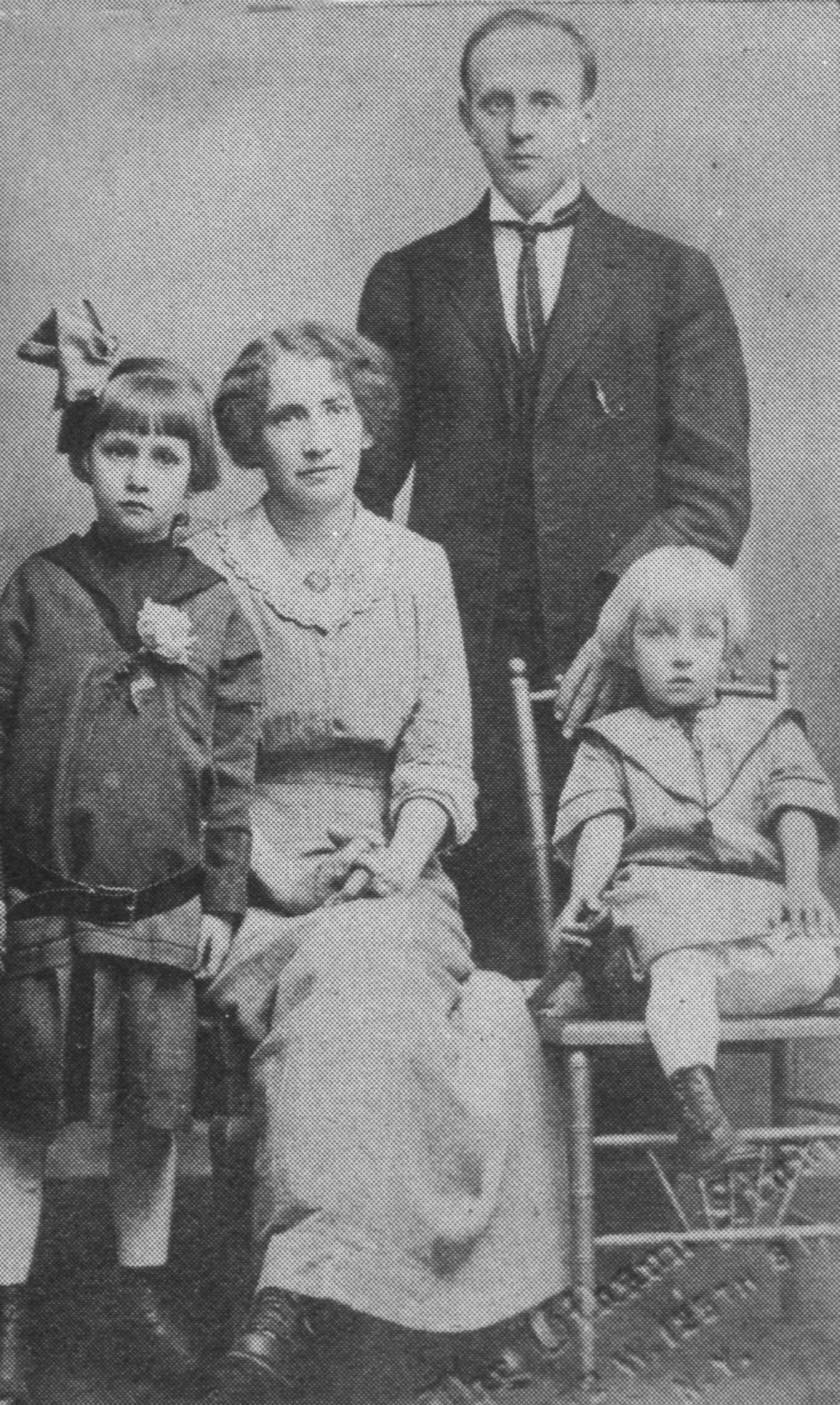Fulfilling God’s Work: Robert F. Cook—Missionary to India
“Robert, come with me to a mission where the people speak in ‘other tongues,’ as they did in the early church. I tell you it is all so wonderful. Every time I go there, I am blessed.” With that brief but enthusiastic invitation from his father, Robert Cook and his wife, Anna, found themselves in the Upper Room Mission on South Spring Street in Los Angeles, California.

Robert and Anna Cook with their daughters Blossom and Dorothy in 1913—the year they arrived in India
The pastor of the mission, Elmer Kirk Fisher, had been involved in the Azusa Street Revival before planting the Upper Room Mission. By the time of Cook’s visit in 1908, the Upper Room Mission was the largest Pentecostal ministry in Los Angeles.
The son of a Baptist minister, Robert Cook was called to ministry when he was 14 years of age, but he had never experienced a Pentecostal service. Cook was especially amazed at the many testimonies of healing and deliverance.
Some months later, Anna became terribly ill and could find no relief from doctors or medicines. Convinced that Anna was dying, Robert called Pastor Fisher to come and pray. Brother Fisher read James 5: 14-18, anointed Anna with oil and prayed. Anna was instantly healed, and the Cooks knew God’s healing power first hand. Later, when Anna became ill again, Robert prayed himself. Not only was Anna healed, but Robert was baptized with the Holy Spirit and spoke in tongues. During that experience Anna saw a vision in which an angel commissioned Robert to ministry.
In October 1913 the Cooks arrived in India as missionaries. Although Anna died in 1917, Robert served in India until his retirement in 1947. While there he preached, planted churches, opened an orphanage, and established Mt. Zion Bible Institute to train ministers. Recognizing the tenuousness of his financial support and that he would one day be unable to care for the growing ministry, Cook began to pray for a Pentecostal group with which to align his ministry. Because of the evil oppression of the Indian caste system, he desired a church body that would treat their Indian brothers and sisters as equal partners in ministry. While seeking the Lord about these things in April 1936, Cook met J.H. Ingram and learned about the Church of God.
Ingram had departed from the United States the previous February on a “Golden Jubilee Tour” in celebration of the 50th anniversary of the Church of God. When Cook heard of Ingram’s visit to Indian, he felt the Spirit say “Here is your help.” As they reviewed the doctrine of the Church of God, Cook was especially drawn to the holiness teachings of the church. He immediately called for a meeting of the Indian churches, and they agreed to affiliate with the Church of God. That August Cook wrote a letter of greetings to the Church of God in the United States. Looking forward to entering yet another unreached area of India he exclaimed in his letter, “Great things are ahead! Let us all take heart and pull together in this, God’s work, not yours or ours, but HIS work.”
This article was written by Church of God Historian David G. Roebuck, Ph.D., who is director of the Dixon Pentecostal Research Center and assistant professor of the history of Christianity at Lee University. This “Church of God Chronicles” was first published in the February 2006 Church of God Evangel.




